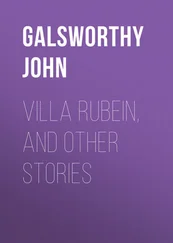I reached again for my wife.
“Erin,” I said, “we’re wrong about him. Please—”
“Erin,” Robbie said then, “please. Please don’t be so hard on me. If you just go down and start breakfast, I promise I’ll be there in a couple minutes. I just have to clear away some of this mess here.”
Recovery is a word I distrust. A word like a feather, like ragweed, it blows in unreliable patterns over too much ground. Because the sanity Robbie has come to enjoy lately must be understood as taking place within strict limits. He’s sane enough to live in a guest house on his father’s property, with a maid next door and a doctor in town. Though these days the songs he sings come from off the radio, on the other hand that’s not such an accomplishment, bringing a thirty-year-old man to the point of singing hit tunes as he noodles around in his darkroom or shovels snow outside. Robbie is a trusty, nothing more. He’s the inmate you can rely on for a job like shoveling snow. And if Robbie does shave most mornings, if generally his hips are lined up under his belt as he walks, if he can now process most of his own shots and use an enlarger correctly, nonetheless I have yet to see him buy any of those razors or clothes or chemicals for himself. He can’t so much as go into town without someone else doing the driving. He visits that doctor four times a week. In fact, the softness of his awareness, the shrugging innocence with which he gives up on harder questions, sometimes can only be understood as his new form of violence. Robbie uses helplessness now the way he used destructiveness then, as a means of stealing our attention from whatever’s upsetting him without at the same time revealing the full ugliness of his case. He hits us with his pillow in part so we’ll play with him, and in part so we won’t see the jissum staining the other side. Thus recovery , no. Recovery will never convey the full sense of what’s gone on during Christmastime this year. For my wife and myself, the better word is remorse .
In the narrow hallways of a school like ours, a person learns fast enough about cruelty. The smirks at the table where you aren’t hip enough to sit, the lies told so evenly it’s as if the heart itself was wrapped up in a winter coat. A person learns fast enough, and we spent all the years we remember best learning. Then why is it Erin and I could never recognize how cruel we were to this boy? Entire landscapes of viciousness, we’d traveled, but why only after the fact could we comprehend the rough proof of the snaps and slides? Late in December hardly a meal went by when there didn’t come to mind, say, some time I’d yanked Robbie to his knees and then laughed at him. Or some freaky valentine we’d ignored, some furniture or silverware in the shape of his own splintered nerves. Or a cold afternoon when, nothing to it, he’d looked our way and we’d turned our backs. Yes, Erin and I couldn’t analyze, couldn’t classify. None of our experience around the quad had prepared us for the raw simplicity of shame. Though of course we’ve tried to rationalize. When we couldn’t manage to forgive ourselves, of course we could smart-talk someone else into doing it for us. “You two must have seemed like the blessed angels to the boy,” the maid told us, or we got the maid to tell us. “Like the blessed angels of the Lord, after the hardship he’d known.”
Ration out the reassurance. Any idiot can get that degree. It’s useless paper before the agony, useless agony after the fact. Every forgiveness lately seems no more to Erin and me than the creaky and overworked string of sanity itself. With each new claim that we helped Robbie, we hear the fastenings shriek that much worse against the rusty cleat of the truth about what we did, and in the glasses of the crowd below us the reflected glare seems that much more dizzying. We understand now that, for the madman, there must also be some numb commitment to the air itself. There must also be the decision to drop. Yet by the New Year, Erin and I had to wonder if our whole life hereafter wouldn’t be this same pinch-footed balance, this softening rope over deeps of remorse, two teenage hoods tottering along forever on boots that have just enough padding for us to pass as cool.
Then during the last week of January, Mr. Challait asked Erin and me to stay on indefinitely.
He asked, and this surprised us both, with Robbie there to hear. The two men sat side by side on the sofa. Robbie sat back, fingers nervously playing over his tie-clip, while his father leaned forward with elbows on knees and thrust that attractive Headmaster’s face at us. Radiators clonged soggily in other rooms. As always since the new windows have been put in, the house felt stuffy. Mr. Challait began by mentioning the possibility of relapses or other secondary disorders. He explained next that, beginning February first, he would become semi-retired. His older son, he said, had taken over most of the traveling since Thanksgiving anyway. Finally the man leaned still closer. He made his offer.
“I can’t pretend I understand the chemistry,” he finished. I’ll never understand, with any precision, that is, how you three worked this out. But frankly—” and his voice broke, his head dropped.
We’d seen Mr. Challait crying before, these past weeks. When he and Robbie fixed the broken rocker, the tears had started to show the first time the son demonstrated he knew where the glue went. Erin and I had learned to go on as if the high emotions weren’t happening.
It was Robbie who spoke next.
“It’s so hard,” he said. “For years and years, for the longest time, all I could think about was my own problem.” His voice was timid, and as he spoke he looked down at himself in his tie-clip, but there was obvious thought behind the words. “That took all my energy. The decision that anyone else matters—” suddenly he looked up—“it’s just so hard .”
Remorse. Remorse seems our only recovery.
“So.” Mr. Challait was folding his handkerchief. “So, ah, everything here would go on the same. But don’t, ah, don’t get me wrong. I’d allow you kids full privileges. Nights off, weekends away, whatever.”
Pretending to think it over, I looked at Erin. Though I could tell already she agreed with me. Yes, sadness may slip my attention way off the mark — I might be distracted by the briefest hint of a remembered bad time — but I can catch my Erin’s sly indicators out of the corner of one eye alone. The way she causes the shadows to change shape in that hair the color of a yellow crayon. The shifting dangle of her blouse’s fold between the peak of her shoulder and the tip of her breast. And she has wonderful hips, my wife, muscular and full of surprises. Especially after she’s set you up with those strict lines in her face.
“Frankly—” Mr. Challait began.
“No thank you,” I said, a little louder than necessary. “No. You can’t expect so much.”
Later that day Erin and I sat at the kitchen table. This was after dinner actually, and we put together our vita sheet line by line. We’d done a lot of writing at this table recently anyway. We’d answered all those letters from friends, the ones about how tough their first semester at college had been. And we may try some of that university life ourselves. I mean a job in a college town doesn’t seem too unlikely at least, since Mr. Challait promised us a “glittering” reference. So we wrote. Robbie bustled in and out, taking our photograph, humming tunes we recognized. The kitchen’s heat too had its familiar light touches, the odors of bourbon and oregano. And after listing what foreign languages she spoke, Erin told me a secret.
“What I always loved about you,” she said, “was that you never took for granted anything the teachers told you. You never took for granted anything they told you. I remember one day Old Witch Winslow told us not to put our hands up behind the radiators in class because there were spiderwebs there. The very next day you had to sit next to the radiator and find out. You were so cool about it, but I saw you. I saw you at your desk with a handful of spiderwebs.”
Читать дальше












